So I have been in Ufa for a little over a week and though it was time to post an update. Before we left for Russia, our group had a CLS orientation in Washington to meet each other and get information about how to use Russian after we graduate. It was great to meet all the people and everyone has been really nice and funin both classes and on excursions. Unfortunately, on the flight from Newark to Washington my suitcase was lost and still has not made it to Ufa, I have been told its in Moscow now, but I’m not sure if it will ever arrive. Luckily, my parents are great and drove down a new bag for me right before we had to leave, so I have clothing and such for the trip.
As for Ufa itself, it is very different than St. Petersburg. One of my favorite aspects of the city ismany of the signs are in Bashkir and Russian so one gets to see both cultures coexisting, although Russian is far more dominant.
My host family has been wonderful so far. I live with a woman, Farida Fagimovna and her 22-year old son Denis (accent on the last syllable) who just finished university. He studied water quality and control engineering which I understand very little about. But he has taken me around and we talk about sports, TV and movies so that has been interesting and really helpful for my language learning. He also worked in America last summer on the Work and Travel program so it has been interesting to hear what he thought about America and what he saw there.
Classes have been challenging, but I have been able to keep up and they are really helping my comprehension. Also, whenever I am at my homestay the TV seems to be on, so I have watched a good amount of Russian TV which helps me work on my accent and get new vocabulary. We are all are working on groups projects while we are here and I am working on media in Bashkortostan, so the things I learned in my senior seminaron Russian television last semester should come in handy.
Finally, since we are some of the few Americans to come to Ufa and a boon to their economy, we were on local television. So for you viewing pleasure, here is the link, its all in Russian but still interesting. I am seen briefly near the end.
http://www.youtube.com/watch?v=gl7uOQftjCc
I will update again after our excursions to religious sites in Ufa and some of the local museums.





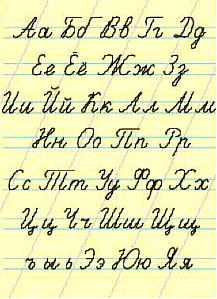


 Dr. Robert Moynihan, the editor of the magazine INSIDE THE VATICAN, presents a talk “Moscow and Rome: latest developments in Vatican-Russian relations in a geopolitical context.” Dr. Moynihan earned his Ph.D. at Yale U and his BA at Harvard.
Dr. Robert Moynihan, the editor of the magazine INSIDE THE VATICAN, presents a talk “Moscow and Rome: latest developments in Vatican-Russian relations in a geopolitical context.” Dr. Moynihan earned his Ph.D. at Yale U and his BA at Harvard.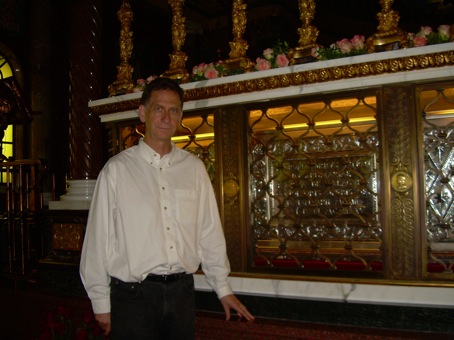
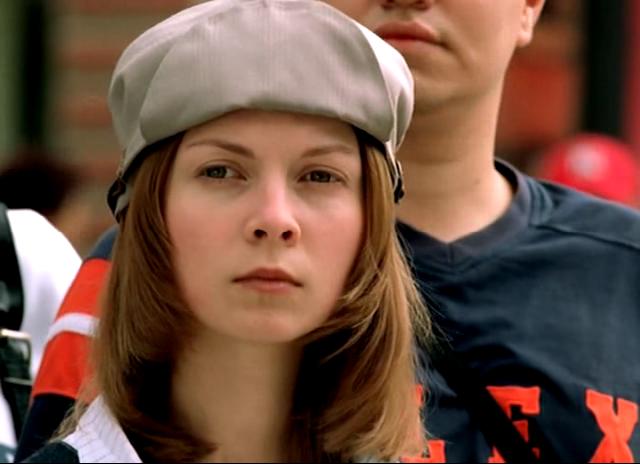
 “The Lighter Side of Russia” Thursday January 27, February 3, February 10 at 5 pm in Washington 301
“The Lighter Side of Russia” Thursday January 27, February 3, February 10 at 5 pm in Washington 301
 Russian Department is having the End of the Semester Russian Dinner this Saturday, December 4th at 6pm.
Russian Department is having the End of the Semester Russian Dinner this Saturday, December 4th at 6pm.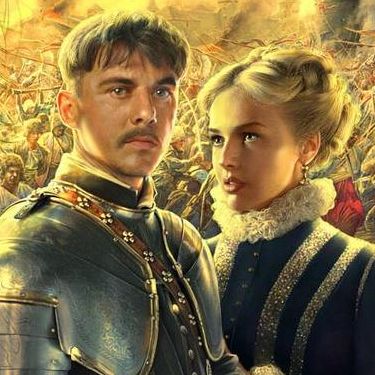
 (2009: Dir. Vladimir Bortko) Cossacks, forbidden pleasures, blood and gore. One critic called Vladimir Bortko’s adaptation of Taras Bulba—Gogolivud, a Hollywood action spectacle that has nothing to do with Nikolai Gogol’s 19th century novella, on which it is allegedly based, and everything to do with the conventions of the commercial film epic. Come watch the film that caused a scandal in several European nations upon its release in 2009.
(2009: Dir. Vladimir Bortko) Cossacks, forbidden pleasures, blood and gore. One critic called Vladimir Bortko’s adaptation of Taras Bulba—Gogolivud, a Hollywood action spectacle that has nothing to do with Nikolai Gogol’s 19th century novella, on which it is allegedly based, and everything to do with the conventions of the commercial film epic. Come watch the film that caused a scandal in several European nations upon its release in 2009.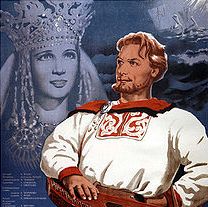
 Mark your calendars. Russian Studies students present three Russian fantasy films: an epic, a Soviet scifi film, and a post-Soviet action thriller. Screenings: Oct 7, Sadko (1953), Oct 14, The Amphibian Man (1962), and Oct 21 Night Watch (2004). All screenings will be in Tyler 201 at 5 pm.
Mark your calendars. Russian Studies students present three Russian fantasy films: an epic, a Soviet scifi film, and a post-Soviet action thriller. Screenings: Oct 7, Sadko (1953), Oct 14, The Amphibian Man (1962), and Oct 21 Night Watch (2004). All screenings will be in Tyler 201 at 5 pm.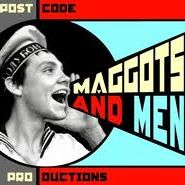
 Anastasia Kayiatos (University of CA, Berkeley) introduces Oakie Treadwell’s Experimental Film Maggots and Men. Maggots and Men is a groundbreaking experimental film project from the Bay Area. Sex, gender, and revolution converge in a story about the 1921 uprising of the Russian sailors against Bolshevik oppressors. The film is inspired by Sergei Eisenstein’s 1925 classic Battleship Potemkin and carries the title of its first reel. Maggots and Men is a postmodernist text, which recycles the aesthetic strategies of the montage movement, manifests the homoerotic subtexts that many critics found significant in Eisentsein’s famous picture, and challenges modern preconceptions about gender and sexuality.
Anastasia Kayiatos (University of CA, Berkeley) introduces Oakie Treadwell’s Experimental Film Maggots and Men. Maggots and Men is a groundbreaking experimental film project from the Bay Area. Sex, gender, and revolution converge in a story about the 1921 uprising of the Russian sailors against Bolshevik oppressors. The film is inspired by Sergei Eisenstein’s 1925 classic Battleship Potemkin and carries the title of its first reel. Maggots and Men is a postmodernist text, which recycles the aesthetic strategies of the montage movement, manifests the homoerotic subtexts that many critics found significant in Eisentsein’s famous picture, and challenges modern preconceptions about gender and sexuality.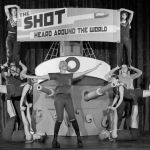
 Join guest speaker Anastasia Kayiatos (University of California, Berkeley) and Roy Chan (William & Mary) in a wide-ranging conversation about sexuality within the context of socialist and post-socialist spaces. Ms. Kayiatos and Prof. Chan work on the cultural histories of Russia and China respectively, and have collaborated on projects concerning the issue of sexual difference in the second world. They welcome all scholars, students and curious individuals to join in conversation on how to think about not only sexuality, but broader issues of social difference in connection to the practices, institutions and historic legacies of socialism.
Join guest speaker Anastasia Kayiatos (University of California, Berkeley) and Roy Chan (William & Mary) in a wide-ranging conversation about sexuality within the context of socialist and post-socialist spaces. Ms. Kayiatos and Prof. Chan work on the cultural histories of Russia and China respectively, and have collaborated on projects concerning the issue of sexual difference in the second world. They welcome all scholars, students and curious individuals to join in conversation on how to think about not only sexuality, but broader issues of social difference in connection to the practices, institutions and historic legacies of socialism.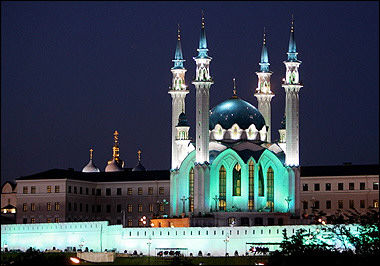
 Sarah Argodale has successfully defended her Honors Thesis “Identity and Memory in the Tatarstan Republic” and was awarded the highest honors. She has presented her research findings at the Honors Colloquium and William & Mary European Studies Conference.
Sarah Argodale has successfully defended her Honors Thesis “Identity and Memory in the Tatarstan Republic” and was awarded the highest honors. She has presented her research findings at the Honors Colloquium and William & Mary European Studies Conference.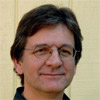
 Professor Corney has been awarded a Harrison Chair of History Professorship (2009-2013).
Professor Corney has been awarded a Harrison Chair of History Professorship (2009-2013).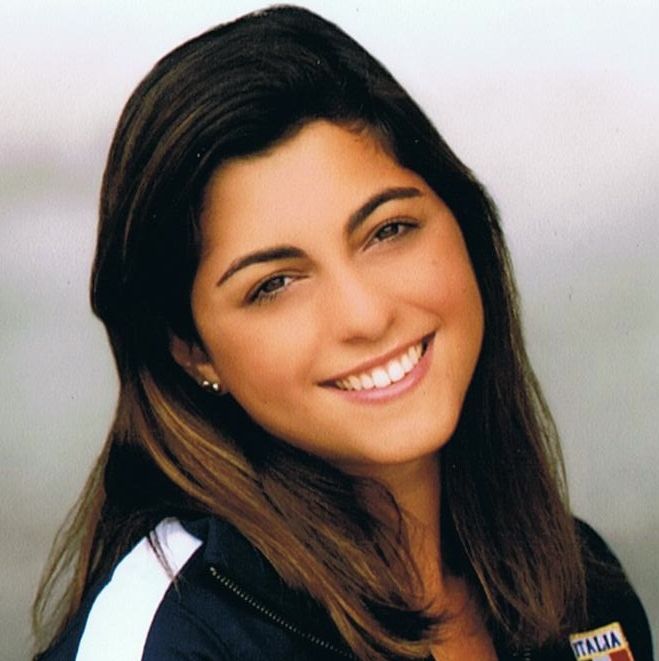
 Eleonora Figliuoli won a bronze medal in this year’s contest, there were 1,023 essays submitted from 64 universities and colleges across the nation. Each essay was ranked by three judges in Russia, and often the results were simply too close to call.
Eleonora Figliuoli won a bronze medal in this year’s contest, there were 1,023 essays submitted from 64 universities and colleges across the nation. Each essay was ranked by three judges in Russia, and often the results were simply too close to call.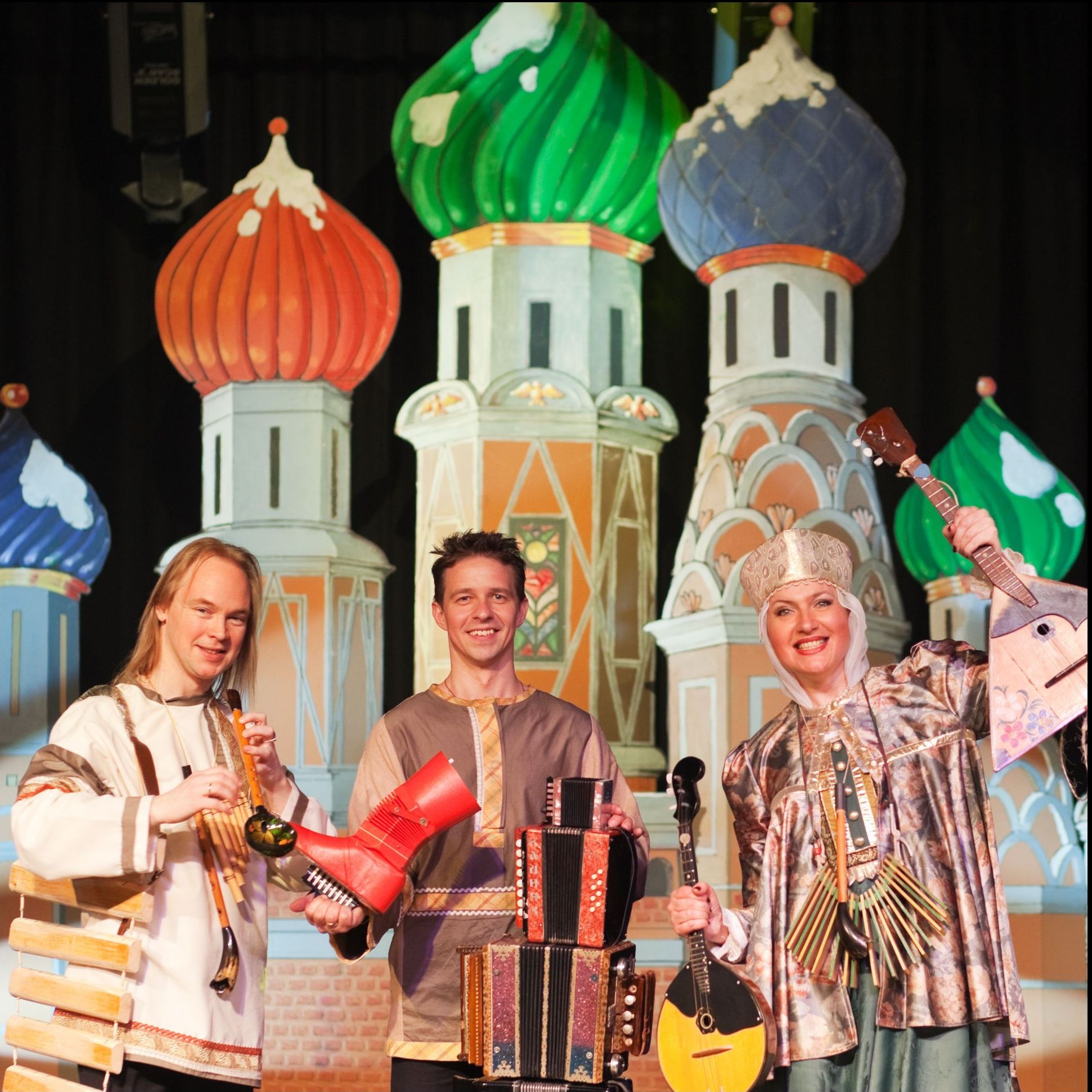
 The famous folk group returns to Williamsburg and will perform in Ewell Recital Hall on April 12 at 7 pm. The winners of a number of prestigious music competitions throughout Europe, members of the Zolotoi Plios Folk Ensemble – Sergei Gratchev, Elena Sadina, and Aleksandr Solovov – are all graduates of the Saratov Music Conservatory. They currently teach at the Royal Carillon School in Mechelen, Belgium, and at Middlebury College, Vermont.
The famous folk group returns to Williamsburg and will perform in Ewell Recital Hall on April 12 at 7 pm. The winners of a number of prestigious music competitions throughout Europe, members of the Zolotoi Plios Folk Ensemble – Sergei Gratchev, Elena Sadina, and Aleksandr Solovov – are all graduates of the Saratov Music Conservatory. They currently teach at the Royal Carillon School in Mechelen, Belgium, and at Middlebury College, Vermont.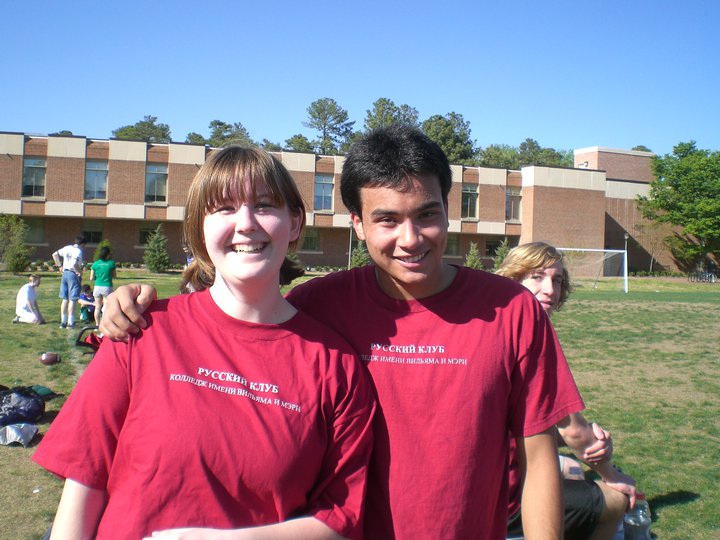
 This weekend on Barksdale Field, the Russian House played soccer with the German House. The Russian House team beat the German team 5:1. The Russian House team is getting ready for the World Cup in South Africa 🙂
This weekend on Barksdale Field, the Russian House played soccer with the German House. The Russian House team beat the German team 5:1. The Russian House team is getting ready for the World Cup in South Africa 🙂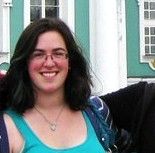
 Maggie Burke, a second year student at the College, was recently awarded the 2010 Dobro Slovo Scholarship in the amount of $500. Established in 2005, the Scholarship is funded by the donations of Russian alumni and faculty and is intended for students studying on the W & M Summer Study Abroad program at St. Petersburg State University.
Maggie Burke, a second year student at the College, was recently awarded the 2010 Dobro Slovo Scholarship in the amount of $500. Established in 2005, the Scholarship is funded by the donations of Russian alumni and faculty and is intended for students studying on the W & M Summer Study Abroad program at St. Petersburg State University.


 On Feb 25th 2010, Sarah Argodale presented her research on memory sites in Post-Communist Tatarstan at the 11th Annual Honor Colloquium. Sarah’s advisor is Professor Corney.
On Feb 25th 2010, Sarah Argodale presented her research on memory sites in Post-Communist Tatarstan at the 11th Annual Honor Colloquium. Sarah’s advisor is Professor Corney.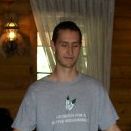
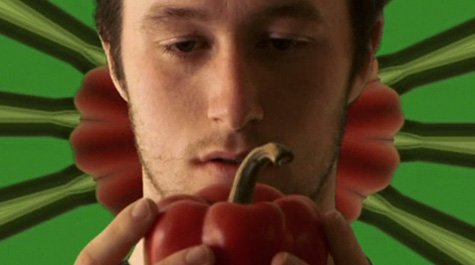

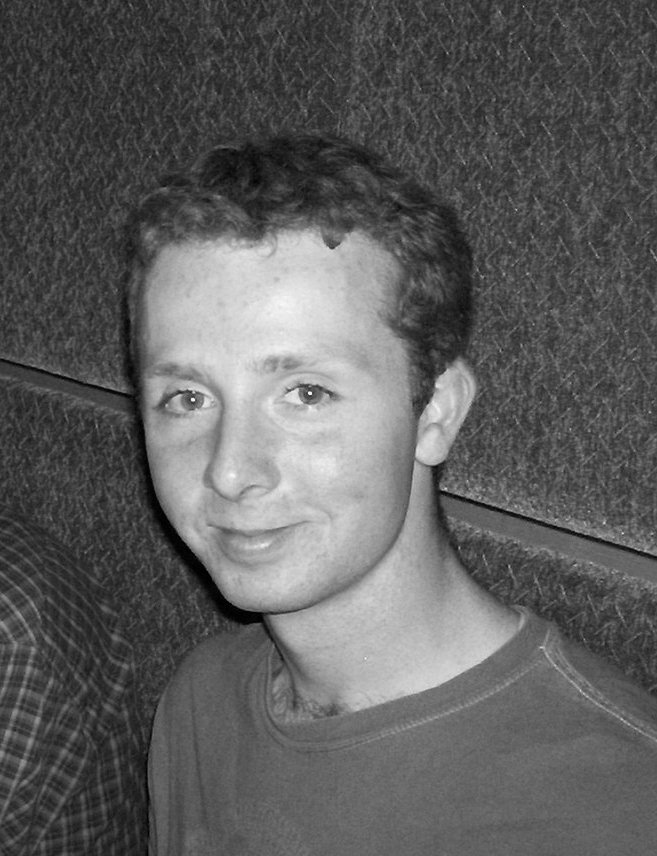

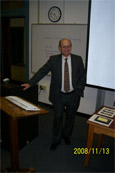

 Yuri Tsivian is a leading scholar of Russian Cinema and international cinema of the 1920s-40s. His most recent monographs are Ivan the Terrible (2002) and Lines of Resistance: Dziga Vertov and the Twenties (2004). He is also involved in the restoration and video mastering of silent films; the remastered DVD versions of Dziga Vertov’s Man with the Movie Camera and Ivan the Terrible both feature his audio essays.
Yuri Tsivian is a leading scholar of Russian Cinema and international cinema of the 1920s-40s. His most recent monographs are Ivan the Terrible (2002) and Lines of Resistance: Dziga Vertov and the Twenties (2004). He is also involved in the restoration and video mastering of silent films; the remastered DVD versions of Dziga Vertov’s Man with the Movie Camera and Ivan the Terrible both feature his audio essays. Russian Studies students made this film in spring 2008. It is a mockumentary about a successful Soviet mission to the Moon in 1967. When the spacecraft’s radio failed, the crew was unable to communicate with ground control and accidentally landed in Kansas. Entirely in Russian with English subtitles 🙂
Russian Studies students made this film in spring 2008. It is a mockumentary about a successful Soviet mission to the Moon in 1967. When the spacecraft’s radio failed, the crew was unable to communicate with ground control and accidentally landed in Kansas. Entirely in Russian with English subtitles 🙂 Kurt Carlson is a Russian and History major. He has been taking Russian at the college since fall 2006 and plans to use the award to travel to St. Petersburg this summer. At St. Petersburg State University, Kurt will be taking three courses: two in Russian and one in translation. He will be also doing an independent research project.
Kurt Carlson is a Russian and History major. He has been taking Russian at the college since fall 2006 and plans to use the award to travel to St. Petersburg this summer. At St. Petersburg State University, Kurt will be taking three courses: two in Russian and one in translation. He will be also doing an independent research project. the nature of opera, its Russian variant, and the transformation of Alexander Pushkin’s novel in verse (1823-31) into Pyotr Tchaikovsky’s world-renowned opera Eugene Onegin (1878). Helena Goscilo is UCIS Research Professor of Slavic at the University of Pittsburgh. She has authored and edited more than a dozen volumes, most recently Russian Culture in the 1990s, a special issue of Studies in 20th Century Literature (2000) and Encyclopedia of Russian Culture (2007).
the nature of opera, its Russian variant, and the transformation of Alexander Pushkin’s novel in verse (1823-31) into Pyotr Tchaikovsky’s world-renowned opera Eugene Onegin (1878). Helena Goscilo is UCIS Research Professor of Slavic at the University of Pittsburgh. She has authored and edited more than a dozen volumes, most recently Russian Culture in the 1990s, a special issue of Studies in 20th Century Literature (2000) and Encyclopedia of Russian Culture (2007). Dr. Kettering talks about items displayed at the exhibition in the Muscarelle Museum of Art. The exhibit includes many pieces from significant porcelain services made by the Imperial Porcelain Factory, starting from Empress Elizabeth and Catherine the Great to Nicholas and Alexandra. Visitors will see items featured at State Banquets at the Kremlin and other Imperial Palaces , as well as items designed for the Tsar’s private use aboard the Imperial Yachts. Among the rare items are two pieces from a service Catherine the Great ordered for her grandson, Grand Duke Constantine Pavlovich, as well as pieces from services presented by Augustus III of Saxony and Frederick the Great to the eighteenth century Russian Tsarinas. The exhibit also features 200 years of glassware, from a beaker from the time of Peter the Great to glassware for the Imperial Yachts and a vase made by the Imperial Glass Factory that the Dowager Empress Maria Fedorovna kept on her desk in Denmark after the Russian Revolution. Russian enamels from the late nineteenth century will include a major jewel casket made by the Ovchinnikov firm and presented to Tsar Alexander III’s Minister of the Interior, as well as the work of Fedor Ruckert and the workmasters of the Faberge firm.
Dr. Kettering talks about items displayed at the exhibition in the Muscarelle Museum of Art. The exhibit includes many pieces from significant porcelain services made by the Imperial Porcelain Factory, starting from Empress Elizabeth and Catherine the Great to Nicholas and Alexandra. Visitors will see items featured at State Banquets at the Kremlin and other Imperial Palaces , as well as items designed for the Tsar’s private use aboard the Imperial Yachts. Among the rare items are two pieces from a service Catherine the Great ordered for her grandson, Grand Duke Constantine Pavlovich, as well as pieces from services presented by Augustus III of Saxony and Frederick the Great to the eighteenth century Russian Tsarinas. The exhibit also features 200 years of glassware, from a beaker from the time of Peter the Great to glassware for the Imperial Yachts and a vase made by the Imperial Glass Factory that the Dowager Empress Maria Fedorovna kept on her desk in Denmark after the Russian Revolution. Russian enamels from the late nineteenth century will include a major jewel casket made by the Ovchinnikov firm and presented to Tsar Alexander III’s Minister of the Interior, as well as the work of Fedor Ruckert and the workmasters of the Faberge firm. Sept 28, 5:30 pm. in Muscarelle Museum of Art Russian artist and art historian NICKOLAI DUBAVIK Lecture: The Paintings of Russian Artist, Zabelin Nickolai Dubavik talks about the tradition of Russian realist painting and one of the major representatives of this tradition in the twentieth century Vyacheslav Zabelin (1935-2002). For more information about the related Exhibition and galleries see
Sept 28, 5:30 pm. in Muscarelle Museum of Art Russian artist and art historian NICKOLAI DUBAVIK Lecture: The Paintings of Russian Artist, Zabelin Nickolai Dubavik talks about the tradition of Russian realist painting and one of the major representatives of this tradition in the twentieth century Vyacheslav Zabelin (1935-2002). For more information about the related Exhibition and galleries see  “The Historical and Religious Context of Russian Icons of the Golden Age.”. Andrews Hall 101 September 21, 5:30 pm.
“The Historical and Religious Context of Russian Icons of the Golden Age.”. Andrews Hall 101 September 21, 5:30 pm. August 26–October 8, 2006 Traditions in Transition Russian Icons in the Age of the Romanovs Organized by the Hillwood Museum and Garden in collaboration with the Steinhardt-Sherlock Trust Tour by International Arts and Artists, Washington, DC The Tzars’ Cabinet Two Hundred Years of Russian Decorative Arts Under the Romanovs Russian Realist Paintings by Vyacheslav Zabelin from the Wurdeman Collection
August 26–October 8, 2006 Traditions in Transition Russian Icons in the Age of the Romanovs Organized by the Hillwood Museum and Garden in collaboration with the Steinhardt-Sherlock Trust Tour by International Arts and Artists, Washington, DC The Tzars’ Cabinet Two Hundred Years of Russian Decorative Arts Under the Romanovs Russian Realist Paintings by Vyacheslav Zabelin from the Wurdeman Collection Rachel Olchesky, a first year student at the College, was recently awarded the first annual Dobro Slovo Scholarship in the amount of $500. Established in 2005, the Scholarship is funded by the donations of Russian alumni and faculty and is intended for students studying on the W & M Summer Study Abroad program at St. Petersburg State University. Rachel is currently in Russian 102 and this will be her first trip to Russia. But not, we hope, her last. Congratulations!
Rachel Olchesky, a first year student at the College, was recently awarded the first annual Dobro Slovo Scholarship in the amount of $500. Established in 2005, the Scholarship is funded by the donations of Russian alumni and faculty and is intended for students studying on the W & M Summer Study Abroad program at St. Petersburg State University. Rachel is currently in Russian 102 and this will be her first trip to Russia. But not, we hope, her last. Congratulations! Tony Anemone recently received a Technology Grant which will allow him to podcast the Advanced Russian Conversation in the spring of 2006. The idea is to use digital technology to make Russian language resources available to students anytime, anywhere. Professor Anemone and Russian House tutor Dasha Khakounova will capture, create, and record Russian language materials, which will be automatically sent to students’ computers Students will then be able to download these audio files to iPod Nanos purchased by the grant, and prepare for classroom discussions on the go.
Tony Anemone recently received a Technology Grant which will allow him to podcast the Advanced Russian Conversation in the spring of 2006. The idea is to use digital technology to make Russian language resources available to students anytime, anywhere. Professor Anemone and Russian House tutor Dasha Khakounova will capture, create, and record Russian language materials, which will be automatically sent to students’ computers Students will then be able to download these audio files to iPod Nanos purchased by the grant, and prepare for classroom discussions on the go. Matt Kiser, who graduated in 2004 with a degree in Russian Studies, has been accepted into the Ph.D. program in Slavic Languages and Literatures at the University of California at Berkeley, one of the premier departments in the nation. Matt’s senior thesis, “Representations of the Intelligentsia in Post-Soviet Crime Fiction” (faculty adviser, Sasha Prokhorov), was awarded High Honors in 2004. Congratulations, Matt!
Matt Kiser, who graduated in 2004 with a degree in Russian Studies, has been accepted into the Ph.D. program in Slavic Languages and Literatures at the University of California at Berkeley, one of the premier departments in the nation. Matt’s senior thesis, “Representations of the Intelligentsia in Post-Soviet Crime Fiction” (faculty adviser, Sasha Prokhorov), was awarded High Honors in 2004. Congratulations, Matt!